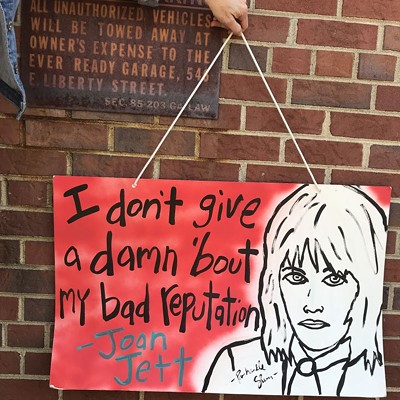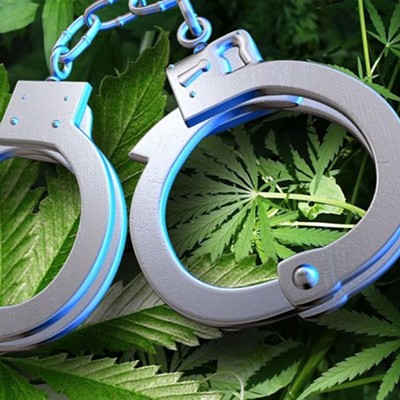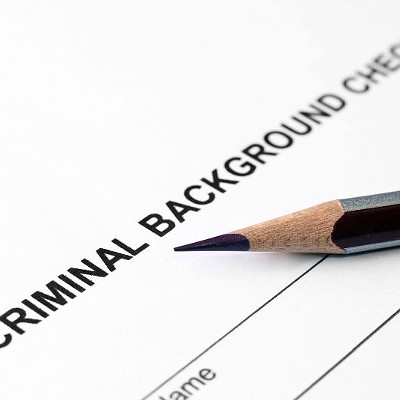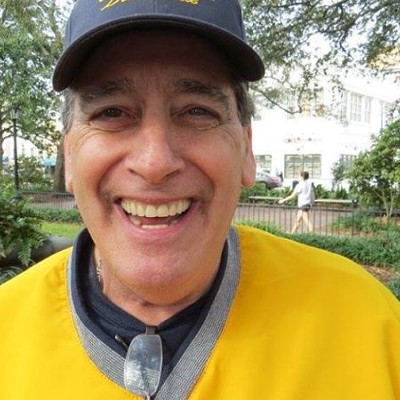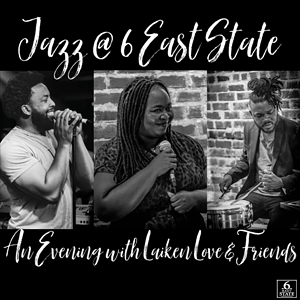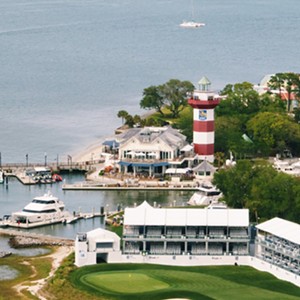Most mornings before dawn, I walk around Daffin Park with a few friends.
It’s dark as the inside of a sock out there and hella creepy. I half expect zombies to come lumbering out of the vast green fields on those misty mornings.
Not that some skanky undead corpse could be a match for our boisterous posse, elbows swinging wide as we powertrot around the park. Armed with a can of pepper spray, a Swiss Army knife and three Krav Maga sessions between us, we feel pretty much invincible.
Of course, zombies aren’t what we’re up against. Unless we’ve extended the definition of “zombie” to include violent, drug–addled sociopaths carrying guns.
My ladies and I, we walk together because we like each other and we need the exercise, but also because there is safety in numbers: Sticking together is a way to deter the rapists and robbers and other Bad People. Many crimes are of opportunity in Savannah, and there are other strategies to avoid becoming a victim, including locking doors and windows, not buying cocaine ever and erupting into loud hippopotamus noises when approached by a suspicious stranger.
But still, still, the Bad People find us. They shove guns in our faces and take our wallets, they rip off our bikes, they attack us when we’re taking out the garbage. They bring guns to public places and shoot innocent bystanders. They murder our loved ones, our neighbors, our friends.
Savannah’s reputation as a dangerous city with a lot of Bad People on the loose has waned since Ricky Jivens and his thugs terrorized the streets back in the '80s. Who could imagine back then that SCAD would raise the city’s profile to the world and that Travel + Leisure magazine would repeatedly applaud it as a favorite destination? The violence has simmered down to a dull roar these last decades, the constant crime politely ignored as an unpleasant but accepted part of life here, a diseased old relative we do our best to hide from the party guests.
Last week’s shooting of seven people at the Coastal Empire Fair has ratcheted up the cocktail conversation. The shootings—assumed to be committed by a gang–steeped teenager though we still have no arrest—brought out the ire of the usually calm and collected Mayor Edna Jackson. She seemed steaming mad at the press conference, calling out the parents of juvenile offenders for not paying attention to their kids’ whereabouts and to what they’re hiding in their closets. To those career criminals who bounce between prison and parole and recidivism, the mayor also warned that the police are coming after them, “like white on rice.”
I found this to be a bizarre—and surely unintentional—choice of words. Maybe because I’d never heard this expression before or maybe because we’re partial to brown rice in our house, it stuck out for me. While I don’t think the mayor meant anything provocative, the phrase was used this week as fuel by others who still see crime in black and white.
I get so irate when people continue to reduce Savannah’s crime issues to race. They point to statistics that show higher incidences of assault and theft in black neighborhoods, to a preponderance of African–American men in jail, to the scumbags arrested in the recent murders of Michael Biancosino, Emily Pickels and Amber DeLoach. Many folks who would never consider themselves racist are rebuking “the black community” to address crime in Savannah as if it’s a lazy neighbor who’s let his lawn get out of control. Nevermind that one county over, it’s white methheads doing the stealing and killing.
My reaction to them, often accompanied by the hippopotamus sounds, is: So @#$ what? Who cares who’s black and who’s white? What are we going to do about the Bad People?
Crime here will never be tempered as long as it’s viewed through the lens of race. Yes, the socioeconomic ills of drug abuse, multi–generational poverty, gang culture, an overburdened court system and flailing public schools—we have those. But plenty of violent sociopaths get raised in the suburbs, too. When it comes to living in this small city of 140,000 people, we have only one community. Mayor Jackson expresses the sentiment as a “United Savannah.” This is our city, and we must face down the Bad People together.
I think we can all agree that getting rid of some drugs and guns is a fantastic place to start. Chief Willie Lovett has already laid out a plan for a $2.5 million budget increase for more juvenile officers and a street team; the SCMPD has its work cut out for them.
But we must also remember that every criminal is not a Bad Person. Sometimes people commit crimes because they haven’t been shown a better way to behave. We citizens must insist on programs like Don’t Shoot, a multi–pronged approach that has empowered the citizens of Boston and other cities to take back their cities from gangs and reduce violence. We also need to keep supporting youth programs that encourage expression and communication like AWOL, Loop it Up Savannah at the West Broad YMCA, the Deep Kids writing program and Spitfire Poetry Group.
Most importantly, we must not let our fears and our prejudices get the best of us—or keep us from riding the Ferris wheel on a beautiful autumn evening. Or from being too afraid to go out at all.
In the meantime, on those dark early mornings in Daffin, my homegirls and I see plenty of others who won’t let the zombies scare them into staying inside. Some carry baseball bats and golf clubs. We are of all colors and age and genders, some in groups, others brave enough to stride through the shadows alone.
And when the sun rises above the trees, every single one of us stops to turn our faces to the light.


